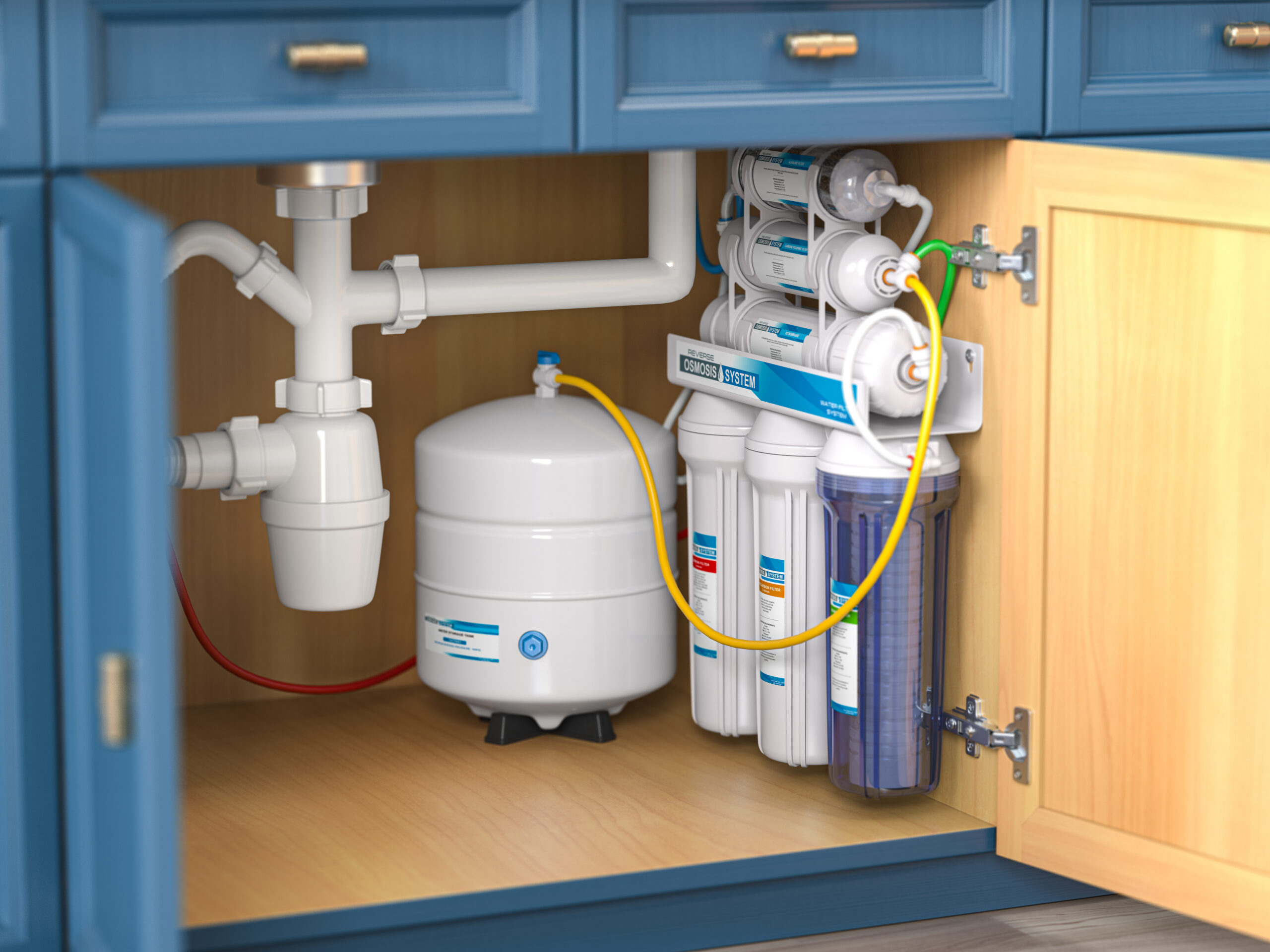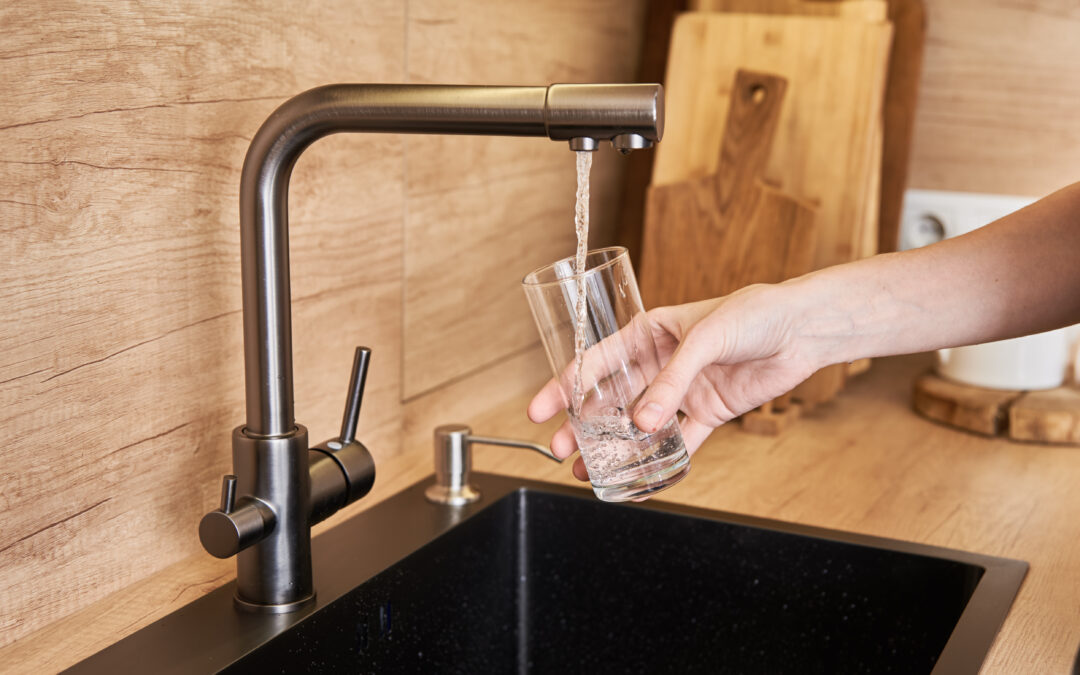Are you looking for the perfect water filter to provide clean, safe drinking water for your family? With so many options on the market, it can be difficult to know which one is best suited for your needs. From pitchers and faucet-mounted models to reverse osmosis systems and whole-house filters, there is no shortage of products available.
In this article, we will provide a comprehensive guide to help you choose the best water filter for your home. We’ll discuss the different types of filtration methods available, their benefits and drawbacks, as well as tips on how to select a system that meets your specific requirements. Whether you are searching for an affordable solution or something more advanced – this guide will have everything you need!
– Overview of Water Filtration Methods – Benefits of Using a Home Water Filter – Types of Filters Available on the Market – How to Choose the Right System for Your Needs – Final Thoughts

1. Overview of Water Filtration Methods
Water filtration is the process of removing undesirable particles, chemicals, and other contaminants from water. There are many different types of filtration methods available, each with its own advantages.
The most common type of filtration is mechanical, which uses a filter to physically remove particles from the water. This can include sediment filters for silt, dirt, and other particulates as well as carbon filters for removing chlorine, pharmaceuticals, pesticides, and many other chemicals. Additionally, there are reverse osmosis systems that use a semi-permeable membrane to remove contaminants at the molecular level. Finally, there are water softener systems that use salt to remove hard minerals such as calcium and magnesium to create soft, clean, drinkable water.
Each type of filtration has its own pros and cons depending on your needs so it’s important to understand the different methods and decide which is best for your situation.

2. Benefits of Using a Home Water Filter
Using a home water filter has many benefits, from providing clean drinking water to reducing the amount of chemicals in your tap water. Additionally, it can save you money by eliminating the need to buy bottled water or other expensive treatments for contaminated water. Finally, using a filtration system reduces plastic waste that comes with buying bottles of water.
Using a home water filter can provide you with peace of mind that your drinking water is safe and clean for consumption. With the right system, you can enjoy cleaner, better-tasting water without worrying about potential contaminants.

3. Types of Filters Available on the Market
There are several different types of water filters available on the market today, each offering its own unique benefits. The most common type is a pitcher or faucet-mounted model which uses replaceable cartridges to remove sediment and chemicals from tap water as it passes through the filter into a jug or directly from your sink’s faucet. These models tend to be more affordable than other types but may not provide as thorough of filtration.
For more advanced filtration, reverse osmosis systems use a semi-permeable membrane to remove even the smallest contaminants from your water supply. Whole house filters are another option, which filter all the water coming into your home at once for maximum coverage. They provide you with the cleanest water possible throughout your entire household and is what many of our customers opt for.

4. How to Choose the Right System for Your Needs
When it comes to choosing the right system for your needs, there are several factors to consider such as budget, the type of contaminants you want to be removed, and how much space you have to install the filter. If you’re looking for a simple, straightforward system that won’t break the bank, then a pitcher or faucet-mounted filter might be your best bet. On the other hand, if you want maximum coverage and protection from contaminants then a whole-house system might be more suitable. Continue reading for more information on each of these options.
It’s also important to research different models and brands to determine which one offers the features and performance you need. Finally, consider maintenance requirements as some systems require frequent cartridge changes while others require minimal upkeep.
By taking all these factors into account, you should be able to find a system that fits your needs and budget perfectly.
Pitcher and faucet-mounted water filters are a popular choice for many households as they are relatively affordable and easy to use. These models work by using replaceable cartridges that remove sediment and chemical contaminants from tap water as it passes through the filter. The filtered water is then stored in a pitcher or directly dispensed from the faucet, depending on the model.
These systems generally feature multiple stages of filtration, which can include activated carbon to absorb harmful toxins, biostone for reducing bacteria, heavy metals and other impurities, and ion exchange for removing chlorine and other chemicals. Different models may even have specialized media that targets specific contaminants like lead or pharmaceuticals. Some pitchers also come with an advanced filtration system that utilizes UV light technology to kill bacteria and viruses before they enter your drinking water. These systems can be expensive over the long term as many require filter changes often. If you want to have a system in place for drinkable water with as little maintenance and work as possible, this is not the system for you.
Reverse osmosis systems are one of the most effective home water filtration solutions available. These systems use a semi-permeable membrane to filter out 99% of all contaminants and pollutants, including lead, chlorine, fluoride, nitrates, pesticides, and other harmful chemicals. The membrane works by allowing water molecules to pass through while blocking larger particles such as bacteria and viruses. Reverse osmosis systems are typically more expensive than other types of filters but they offer superior protection from almost all known contaminants.
Whole house filters are another option for those looking for comprehensive water filtration coverage. These systems typically incorporate multiple stages of filtration technology—including sediment removal, activated carbon adsorption, ion exchange and ultrafiltration—in order to provide comprehensive protection against a wide range of contaminants. Whole house filters also come in different sizes and can be designed to fit any size or type of home. Additionally, some models have advanced features like UV light sterilization or temperature controls to ensure that the water is always safe for consumption.

Final Thoughts
When it comes to choosing the right water filtration system for your home, there are several factors you’ ll need to consider. From budget and size requirements to protection level and advanced features – each type of filter has its own pros and cons that will ultimately determine which is best suited for your needs. Reverse osmosis systems offer superior protection against chlorine and other chemicals, while whole-house filters provide more comprehensive coverage from multiple stages of filtration technology. Ultimately, both types can help purify your tap water, but understanding what contaminants you want removed should be a priority when making this important decision. With the right information in hand, picking out the perfect water filter for your home won’t have to be such an overwhelming task!
At Infinite Water, we serve all of Saskatoon and will help you find the perfect water filtration solution for your family and your home. Click the contact button below to schedule a time to speak to one of our water specialists!

